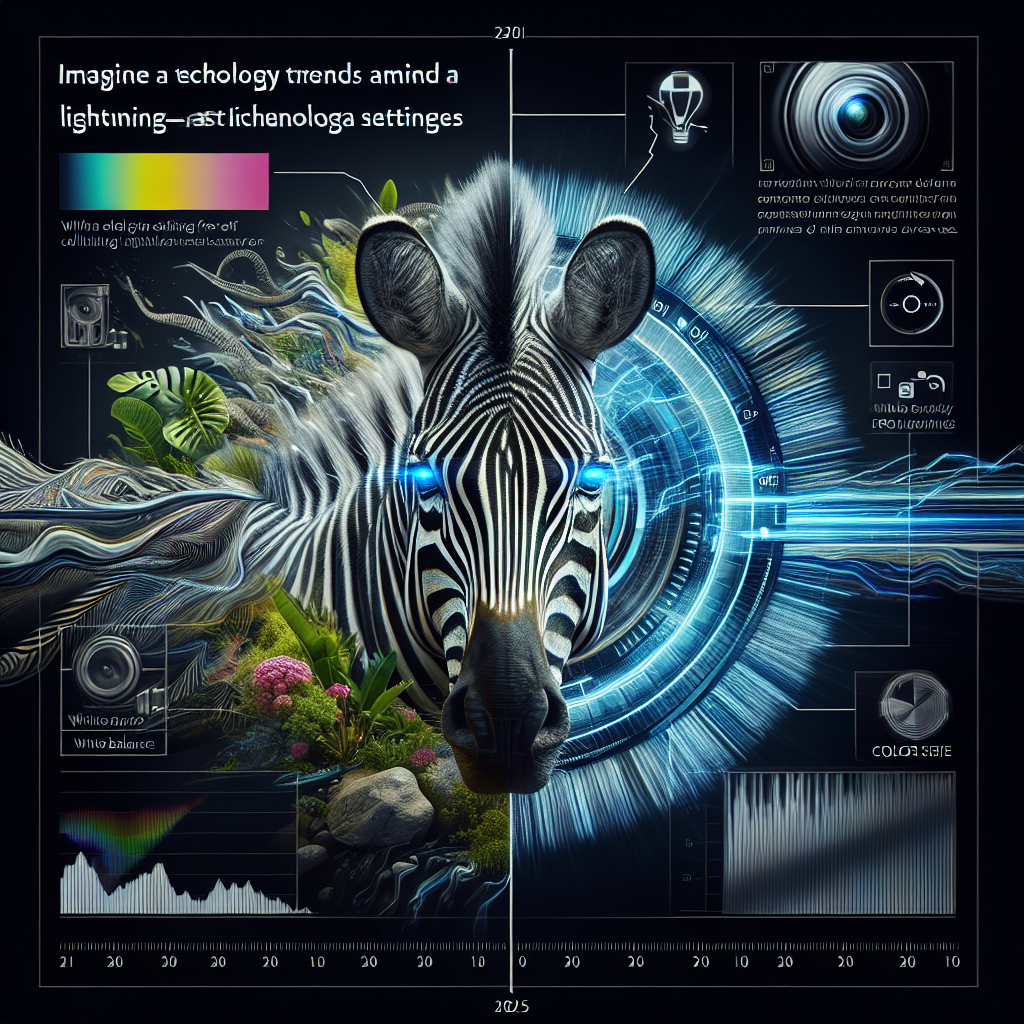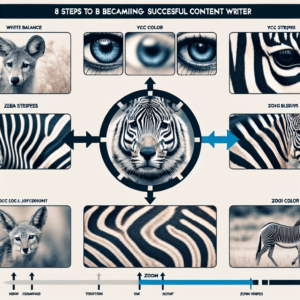Emerging Innovations: 25 Technology Trends Shaping the World in 2025
As we approach 2025, the pace of technological advancement continues to accelerate, ushering in a new era of innovation that is reshaping industries, economies, and daily life. Among the most transformative trends is the expansion of artificial intelligence (AI), which is becoming increasingly integrated into sectors such as healthcare, finance, and education. AI-driven tools are enhancing diagnostic accuracy, streamlining financial forecasting, and personalizing learning experiences, thereby improving efficiency and outcomes across the board.
Simultaneously, the proliferation of 5G networks is enabling faster and more reliable connectivity, laying the groundwork for the widespread adoption of the Internet of Things (IoT). This enhanced connectivity is facilitating the development of smart cities, where interconnected devices optimize traffic flow, energy consumption, and public safety. In parallel, edge computing is gaining traction as a means to process data closer to its source, reducing latency and improving real-time decision-making in applications ranging from autonomous vehicles to industrial automation.
Another significant trend is the rise of quantum computing, which promises to revolutionize problem-solving capabilities in fields such as cryptography, drug discovery, and climate modeling. Although still in its early stages, progress in quantum hardware and algorithms suggests that practical applications may soon become viable. Alongside this, blockchain technology is evolving beyond cryptocurrencies to support secure, transparent systems for supply chain management, digital identity verification, and decentralized finance.
In the realm of sustainability, green technology is taking center stage. Innovations in renewable energy, such as advanced solar panels and next-generation wind turbines, are making clean power more accessible and affordable. Moreover, energy storage solutions, including solid-state batteries and grid-scale storage systems, are addressing the intermittency of renewable sources, thereby enhancing grid reliability. These developments are complemented by the emergence of carbon capture technologies and sustainable manufacturing practices aimed at reducing environmental impact.
Meanwhile, biotechnology is experiencing a renaissance, driven by breakthroughs in gene editing, synthetic biology, and personalized medicine. Tools like CRISPR are enabling precise genetic modifications, opening new avenues for treating genetic disorders and developing resilient crops. At the same time, wearable health devices and remote monitoring systems are empowering individuals to take a proactive role in managing their health, while also providing valuable data for medical research.
The field of robotics is also advancing rapidly, with robots becoming more agile, intelligent, and collaborative. From warehouse automation to surgical assistance, these machines are augmenting human capabilities and transforming workflows. In education, immersive technologies such as virtual reality (VR) and augmented reality (AR) are creating engaging, interactive learning environments that cater to diverse learning styles.
Furthermore, the concept of the metaverse is gaining momentum, blending digital and physical realities to create shared virtual spaces for work, play, and social interaction. As hardware and software continue to evolve, these environments are expected to become more immersive and accessible. Finally, cybersecurity remains a critical focus, with innovations in AI-driven threat detection, zero-trust architectures, and quantum-resistant encryption helping to safeguard digital assets in an increasingly connected world.
Together, these 25 technology trends are not only shaping the landscape of 2025 but also laying the foundation for a more connected, intelligent, and sustainable future.
Future Forward: Key Tech Trends to Watch in 2025

As we approach 2025, the pace of technological advancement continues to accelerate, reshaping industries, economies, and daily life in profound ways. Emerging innovations are not only enhancing existing systems but also creating entirely new paradigms for how we interact with the world. Among the most influential trends is the rapid evolution of artificial intelligence. AI is becoming more sophisticated, with generative models and machine learning algorithms driving automation, personalization, and decision-making across sectors ranging from healthcare to finance.
Closely tied to AI is the expansion of edge computing. As the demand for real-time data processing grows, edge computing enables faster and more efficient operations by bringing computation closer to the source of data. This is particularly critical for applications such as autonomous vehicles, smart cities, and industrial IoT, where latency can significantly impact performance. In parallel, the rollout of 5G networks is providing the necessary infrastructure to support these data-intensive technologies, offering higher speeds, lower latency, and greater connectivity.
Another transformative trend is the rise of quantum computing. While still in its early stages, quantum technology promises to revolutionize problem-solving capabilities in fields like cryptography, materials science, and complex simulations. As research progresses, we can expect to see more practical applications emerge, potentially disrupting traditional computing models. Meanwhile, blockchain technology continues to evolve beyond cryptocurrencies. In 2025, decentralized finance (DeFi), supply chain transparency, and digital identity verification are expected to gain further traction, driven by increased trust in distributed ledger systems.
Sustainability is also becoming a central focus in technological development. Innovations in green tech, such as carbon capture, renewable energy storage, and energy-efficient computing, are addressing the urgent need to combat climate change. Companies are increasingly integrating environmental considerations into their product design and operations, leveraging technology to reduce their carbon footprint. Similarly, the circular economy is being supported by advancements in materials science and recycling technologies, promoting more sustainable consumption patterns.
In the realm of healthcare, digital transformation is accelerating. Telemedicine, wearable health monitors, and AI-driven diagnostics are making healthcare more accessible and personalized. Genomic technologies and precision medicine are also gaining momentum, enabling treatments tailored to individual genetic profiles. These developments are not only improving patient outcomes but also optimizing healthcare delivery systems.
Education is undergoing a parallel transformation, with immersive technologies like virtual and augmented reality enhancing learning experiences. These tools are making education more interactive and inclusive, particularly in remote or underserved areas. Additionally, the integration of AI in educational platforms is enabling adaptive learning, where content is tailored to the pace and style of each student.
Cybersecurity remains a critical concern as digital ecosystems expand. In 2025, we can expect to see increased investment in zero-trust architectures, biometric authentication, and AI-powered threat detection. As cyber threats become more sophisticated, so too must the defenses that protect sensitive data and infrastructure.
Finally, the convergence of these technologies is fostering new business models and societal shifts. From the metaverse to digital twins, the blending of physical and digital realities is opening up unprecedented opportunities for innovation. As we move forward, staying informed about these key trends will be essential for navigating the complex and dynamic landscape of 2025.
Disruptive Technologies: 25 Game-Changing Trends for 2025
As we approach 2025, the pace of technological innovation continues to accelerate, ushering in a new era of disruption across industries and societies. Among the most transformative developments are those that redefine how we live, work, and interact with the world around us. These disruptive technologies are not only reshaping existing markets but also creating entirely new ones, setting the stage for profound changes in the global landscape.
One of the most significant trends is the rapid advancement of artificial intelligence. AI is becoming increasingly sophisticated, enabling machines to perform complex tasks such as natural language processing, predictive analytics, and autonomous decision-making. This evolution is driving innovation in sectors ranging from healthcare and finance to manufacturing and education. Closely related is the rise of machine learning and deep learning algorithms, which are enhancing the capabilities of AI systems and allowing for more personalized and efficient services.
In parallel, quantum computing is emerging as a game-changer. Although still in its early stages, quantum technology promises to revolutionize data processing by solving problems that are currently intractable for classical computers. This could have far-reaching implications for cryptography, drug discovery, and climate modeling. Meanwhile, edge computing is gaining traction as a solution to the limitations of centralized cloud infrastructure. By processing data closer to the source, edge computing reduces latency and improves real-time decision-making, particularly in applications like autonomous vehicles and smart cities.
Another disruptive force is the continued evolution of the Internet of Things (IoT). With billions of connected devices expected by 2025, IoT is enabling smarter homes, more efficient industrial operations, and enhanced urban infrastructure. This connectivity is further amplified by the rollout of 5G networks, which offer faster speeds, lower latency, and greater capacity. Together, these technologies are laying the groundwork for a hyper-connected world.
In the realm of biotechnology, gene editing tools such as CRISPR are opening new frontiers in medicine and agriculture. These technologies allow for precise modifications to DNA, offering the potential to cure genetic diseases and improve crop resilience. At the same time, advancements in synthetic biology are enabling the creation of entirely new organisms, with applications ranging from biofuels to sustainable materials.
Energy innovation is also playing a critical role in shaping the future. Breakthroughs in battery technology, such as solid-state batteries, are making renewable energy more viable by improving storage capacity and safety. Additionally, the development of green hydrogen and carbon capture technologies is helping to address the urgent need for decarbonization.
In the digital realm, blockchain continues to disrupt traditional systems by offering decentralized and secure methods of recording transactions. Beyond cryptocurrencies, blockchain is being applied to supply chain management, digital identity, and smart contracts. Simultaneously, the metaverse is gaining momentum as a new digital frontier, blending virtual reality, augmented reality, and social interaction to create immersive experiences.
As these 25 technology trends converge, they are not only transforming individual sectors but also redefining the fabric of society. The year 2025 stands as a pivotal moment, where the integration of these disruptive technologies will shape the trajectory of innovation for decades to come.



